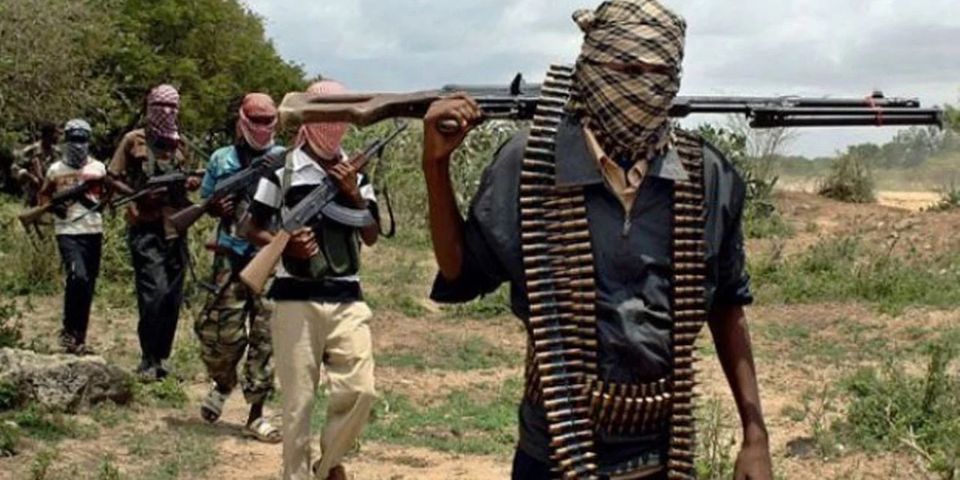Due to the increased security following a jail break where some of the most vicious criminals and terrorists escaped, schools in Abuja, the capital of Nigeria, and its surroundings are being forced to close.
In a nation already experiencing an education crisis, UNICEF voiced worry that this will probably have an impact on the number of children who are not in school.
According to UNICEF, 18.5 million children in Nigeria, predominantly females, lack access to an education.
“Currently in Nigeria, there are 18.5 million out-of-school children, 60% of whom are girls,” Rahama Farah, the head of the UNICEF office in Kano, said in May. This came in the wake of mass abductions in many schools last year with some 1,500 pupils being kidnapped in 2021.
Read Also: Okowa Expresses Confidence In PDP’s Unity Ahead Of 2023 Elections
Some of the notable abductions last year were:
- 344 schoolchildren of Government Science Secondary School, Kankara, and 80 pupils of Islamiyya School, Mahuta, both in Katsina State;
- 27 boys at GSS College, Kagara, Niger State;
- and 279 schoolgirls of Government Girls Secondary School, Jangebe, Zamfara State.
Some affected northern states including Katsina, Niger and Zamfara ordered the closure of – mostly boarding – schools in remote areas for several months, forcing many to give up education altogether. By UNICEF’s estimates, 11,000 schools were closed between December 2020 and early 2022 over insecurity, largely in the north.
Terrorists Besiege Abuja
Banditry and terrorism had long been confined to isolated northern regions with high levels of poverty and illiteracy.
Attackers, however, have already started to make their way to Abuja, the nation’s capital, after feeling more confident.
Invading the Kuje Correctional Centre in Abuja, the most security jail in the nation, a few weeks ago, terrorists who had bombed a train and kidnapped passengers in March liberated over 500 inmates, including roughly 65 convicted terrorists.
The United States and the United Kingdom were compelled to issue separate warnings to its people in Nigeria’s capital to exercise caution as a result. In response to the jailbreak, the US particularly projected an increase in violent crimes.
The advisory stated;
An increase in crime is expected in and around Abuja. It is recommended that US citizens should maintain a high state of personal security awareness for the next two weeks and avoid unnecessary travel on the airport road. Crime is endemic throughout Nigeria and tends to spike after dark.
Daring terrorists ambushed members of the Presidential Guards Brigade, an elite unit of the Nigerian Army tasked with guarding the president, on July 24.
About eight army personnel who were responding to a distress call at the law school were killed in the attack that occurred in the Bwari neighborhood of Abuja, where there is a law school.
Indifference And/Or Failure Of Security Intelligence?
National security advisor Babagana Monguno responded to the assault on the army commanders by stating;
Troops of the guards’ brigade were attacked and annihilated. We might have been able to prevent that incident if there had been a coordinated effort using only fragments of information.
Reports, however, imply that Nigeria’s security services do not lack intelligence. Instead, how they use it is one of the issues.
The Department of State Services (DSS), Nigeria’s secret police, transmitted 44 intelligence reports before to the attack on the Kuje jail that resulted in the liberation of terrorists, according to the deputy speaker of the house of representatives, Ahmed Wase.
Ahmed Idris Wase said on the floor of the house of representatives.
You cannot imagine what is happening today in Abuja. I’ll confirm to you that I went through the DSS report — 44 reports were given before the attack on Kuje.
Closure Of Schools
The Nigerian education ministry earlier this week ordered the immediate closure of one of its colleges, the Federal Government College Kwali, which is located in Kwali Area Council, a remote area of the capital, in a desperate attempt to protect the lives of students in the wake of the rising insecurity in Abuja.
According to the government, the shutdown was necessary as a result of a security breach in Kwali. As soon as possible, panicked parents rushed to the school to take up their kids.
Numerous other schools in different areas of Abuja were also compelled to change their academic calendars in order to end classes earlier than expected. Governor Abdullahi Sule also mandated the immediate closure of schools in Nasarawa, a state that borders the federal capital.
The decision became necessary considering the proximity of the state to the Federal Capital Territory, as well as the resolve of the government to ensure that schools in Nasarawa state operate within a safe environment.
Impeachment Threats
While Nigeria has continued to witness rising insecurity, President Muhammadu Buhari – who was elected on his promise to tackle insecurity – has not been able to restore normalcy despite his military credentials.
Buhari is now facing threats of an impeachment in the national assembly. However, the fact that his party, the All Progressives Congress (APC), holds a majority of the seats in the legislative branch of government, makes such a move unlikely.

